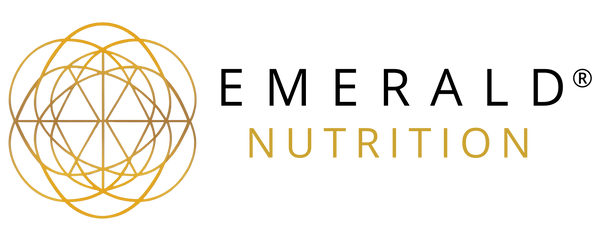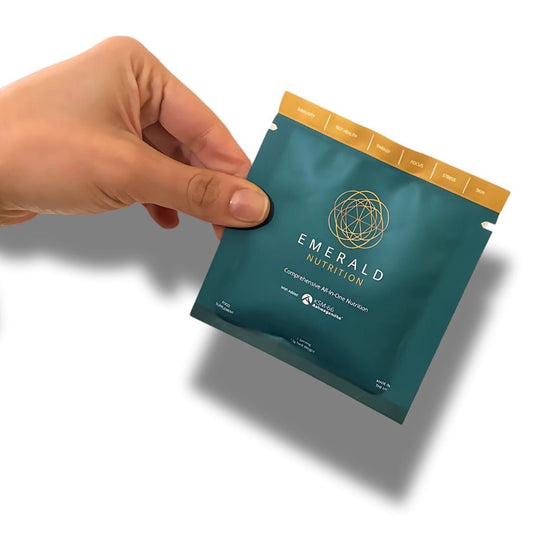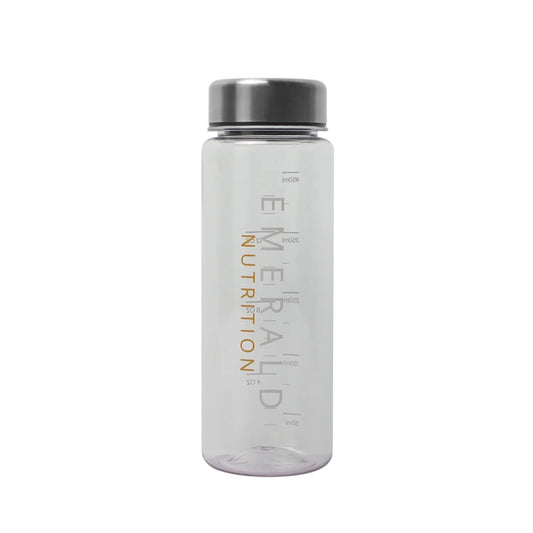
Micronutrients - what are they, and why is this Important!?
Julia BłoszykShare
Calories will determine your weight,
Macronutrients will determine how you look,
Micronutrients will determine how you feel
We live in a world that is focused on looking at food through the macronutrient lens – what is the fat, carbs, sugar and protein levels of this or that, and put a great deal of emphasis on these macros and calories as the barometer of a healthy diet.
In reality, it is only one side of the story, and perhaps the opposite of what we should be focusing on. A"healthy diet", should include as much as possible, fresh whole foods which have been processed to the least extent i.e. made available in their most natural form in order to maintain their innate micronutrient levels (You might have noticed this in our recent social media post on "6 Steps to Better Health"—here it is again in case you missed it).
6 Steps to better Health by Emerald Nutrition
So what are Micronutrients and why are they important?
Even though, we don’t need much of them, they are critical for maintaining physical and psychological health.
Micronutrients as defined by the World Health Organisation (WHO) are vitamins and minerals needed by the body in very small amounts. Even though, we don’t need much of them, they are critical for maintaining physical and psychological health. The role of vitamins include assuring good immunity, energy release and blood clotting. While minerals help with appropriate growth, hydration, mental focus, clarity, and bone health.
The most common deficiencies around the world are in iron, vitamin A and iodine. In 2023, it was estimated that 1 in every 5 adults experiences general fatigue lasting up to 6 months, despite not being affected by any underlying health condition - signalling a nutritional deficiency. In the UK, the most prevalent micronutrient deficiencies were in vitamin D, vitamin B12, vitamin B9, calcium and iron.
"In the UK, the most prevalent micronutrient deficiencies were in vitamin D, vitamin B12, vitamin B9, calcium and iron."
With this in mind, Emerald Nutrition (EN) was formulated to contain the most readily available sources of these nutrients, including:
-
Vitamin D3 from Vita-algae D TM - a vegan friendly plant based source ofVitamin D3 derived from algae. The body produces Vitamin D from sunlight, but insufficient sun exposure can lead to deficiencies, such as weak or brittle bones and reduced immunity to viruses. Since it's nearly impossible to get enough Vitamin D from diet alone, supplementation can be beneficial. For us folk living in the UK, or who live and work a lot indoors there is an increased seasonal risk of deficiency due to the shortened sunlight window between the months of October through to April.
https://www.nhs.uk/conditions/vitamins-and-minerals/vitamin-
- Methylcobalamin - Vitamin B12 , is naturally found in the human body. There are two forms of vitaminB12 that you're likely to come across – methylcobalamin and cyanocobalamin. Cyanocobalamin is the most commonly supplemented form of vitaminB12 and is chemically synthesised. Methylcobalamin is the naturally occurring and active form. VitaminB12 is responsible for maternal tissue growth during pregnancy, homocysteine metabolism*, normal psychological and immune function, and contributes to the reduction of tiredness and fatigue.
- 5-methyltetrahydrofolate (5-MTFH) - EN contains the active form of Vitamin B9, as opposed to Folic Acid - a synthetic form of vitamin B9 found in most other supplements - follow the link here to read up on the differences: https://www.ncbi.nlm.nih.gov/pmc/articles/PMC9380836/. Vitamin B9, contributes to maternal tissue growth during pregnancy, normal homocysteine metabolism*, normal psychological function, and contributes to the reduction of tiredness and fatigue. Although folate can be found in a variety of foods (green leafy vegetables, fruits and sprouts) it is easily lost in oxidation before reaching our gut for absorption.
- Iodine - EN also contains Iodine as Potassium Iodide, but this is also found naturally in the Seagreens® ingredient in our formula. Seaweeds produced to a very high standard such as Seagreens® provide a natural source of all the minerals and trace elements, rare vitamins, ideal ratios of Omega fatty acids, valuable antioxidants, and soluble dietary fibre.
*Homocysteine metabolism occurs in all body cells and is responsible for mood balance, detoxification and inflammation control. The combination of folate, vitamin B12 and B6 helps to maintain normal Homocysteine levels, which when unbalanced, can build up to toxic levels.

Emerald Nutrition also contains iron – responsible for reduction of tiredness and fatigue, magnesium (bisglycinate)-contributing to electrolyte balance, muscle and psychological function, calcium – maintaining normal bones and teeth, and choline – a nutrient responsible for normal liver function, lipid metabolism and brain function; which insufficient intake across the lifespan may be linked to neurovegetative disorders, including Alzheimer's Disease - https://ods.od.nih.gov/factsheets/Choline-Consumer/


What about processed and ultra-processed convenience foods?
Although macronutrients are the primary energy source, their origin and quality significantly affect the body. In fact a large number of our everyday store-bought items and convenience foods /snacks qualify as ultra-processed foods – with many additives (such as: sugar syrups, hydrogenated plant and seed oils, modified starches, gums and thickeners), which fail bring any nutritional value or health benefits (Chris van Tulleken “Ultra-Processed people”).
Our nutrition should therefore ideally prioritise wholegrains, fruits, vegetables, nuts, seeds and quality protein sources – all with minimal processing. The body can utilise nutrients better in their natural form - it is the way nature intended it to be.
“Minerals occur naturally within the soil and are drawn into plants via their root systems”
But wait, arn't Supplements ultra-processed?
While there are processes involved in transforming living foods into supplement powders or using synthetic ingredients, the benefits often outweigh the drawbacks, especially regarding micronutrition, as well as deriving access to certain phytonutrient benefits (we'll look at this in greater detail in another upcoming blog). However, when selecting a vitamin or mineral supplement, it's crucial to choose products we can trust—those from reliable sources that use high-quality ingredients and are third-party tested for safe microbiology, heavy metals, and pesticide levels.
Why Emerald Nutrition?
Alongside an array of other ingredients and nutritional benefits, Emerald Nutrition provides a vegan friendly,easily absorbable, and controlled 50% Daily Reference Intake (RI) for Adults across a spectrum of 25 vitamins and minerals in one serving – providing a quick boost of essential micronutrients, while still leaving capacity for real food, and absorption of nutrients from your diet. We're also completely transparent on the ingredients used as well as the dosages, and incorporate only the finest quality ingredients from around the world with absolutely no fillers, preservatives or other nasties. We go that one stage further by ensuring each product is 3rd party lab tested for contaminants to ensure consistent quality.
"Emerald Nutrition Supergreens provides a vegan friendly, easily absorbable, and controlled 50% Daily Reference Intake (RI) for Adults across a spectrum of 25 vitamins and minerals in one serving – providing a quick boost of essential micronutrients"

Incorporate Emerald Nutrition into your morning routine
EN can be used daily as part of your morning routine, or in a supplement cycling way – taken for a few days when we need to top up on our micronutrients, followed by a break period, focusing on a balanced food intake.
Always remember to consult a healthcare professional before taking any supplement.
Note: Vitamin and mineral supplements might take a few days to start working; our stores and needs for certain nutrients will determine how quickly we see the results.







